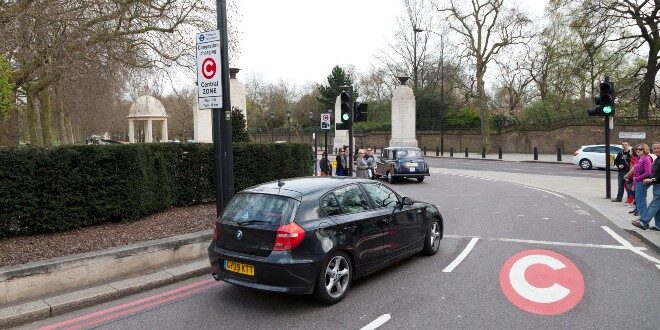TfL is today opening a consultation and seeking views on the future operation of the congestion charge.
The main proposals include no charges in the evenings to support London’s recovery, operating between 12:00-18:00 on weekends and retaining the current charge level of £15. These changes will support London’s culture, hospitality and night-time businesses and also ensure gains made in reducing car dependency over more than 15 years are not lost and the capital’s recovery from the pandemic is a green and sustainable one, said TfL.
Congestion is also damaging to the economy: in 2017, drivers in London spent an average of 71 hours in gridlock during peak hours, contributing to congestion costing London £9.5 billion in 2017. The Mayor’s target is for 80% of trips made in the capital in 2041 to be by walking, cycling or public transport, and the target for central London is 95% of trips to be made by these types of travel.
Mayor of London Sadiq Khan said: “The Government insisted on the widening of the level and scope of the congestion charge last year as a condition of TfL’s emergency funding agreement – which was only needed because of the pandemic. As we look to the future it’s vital the charge strikes the right balance between supporting London’s economic recovery and helping ensure it is a green and sustainable one.
“These proposals support the capital’s culture, hospitality and night-time businesses which have struggled so much, as well as encouraging people to walk, cycle and use public transport. We must not replace one public health crisis with another due to filthy polluted air, and our measures to create more space for walking and cycling have already had a huge impact. I urge Londoners to have their say and take part in the consultation.”
Since May 2020, more than 100km of new or upgraded cycle lanes have been built or are under construction, along with more than 22,500 square metres of extra pavement space reallocated for people walking. The measures mean people are increasingly using bikes to get around their local area and for exercise, with recent TfL data showing cycling has increased by 22% in outer London compared to spring 2019, with a 7% rise in inner London.
Alex Williams, TfL’s director of city planning, said: “These proposals are aimed at ensuring that travel in and around the heart of the city is sustainable in the long term. We know that the charge plays a vital role in helping the logistics industry reach its customers on time and in encouraging people to walk, cycle and take public transport.
“It is also a time when theatres, restaurants and other cultural attractions are trying to get back on their feet again, which is why, after listening to industry bodies, the plans include the charge only being in place during the day. This is a balanced package of measures and I would encourage people to have their say in the consultation.”
The proposed new weekend charging hours are targeted at reducing congestion at the busiest times. Weekend car and private hire traffic before the pandemic was higher than during the week and made up 70% of traffic in the charging zone on a Saturday and Sunday. If the proposed new weekend hours are brought in, it is estimated there will be an increase in sustainable travel compared to before the pandemic, with around 8,000 new public transport trips and 3,000 walking and cycling trips each day on the weekend.
To boost London’s culture, hospitality and night-time businesses, as well supporting shift workers who perform essential roles in the central London economy, the plans include the charge stopping at 18:00 on weekdays. This is in line with the pre-pandemic hours, rather than the current 22:00 finish time. Evening traffic data will be kept under review, given that weekday travel patterns in particular remain uncertain.

Following feedback from those living in central London, the plans include opening up the 90% residents’ discount to new applicants. The discount has been closed to new applicants since 1st August 2020.
Other proposals include no charge between Christmas Day and New Year’s Day inclusive, the charge to be in operation on bank holidays from 12:00-18:00, and being able to pay up to three days after travel.
Read the July issue of BikeBiz below:
 BikeBiz Bicycle and cycling retail news
BikeBiz Bicycle and cycling retail news




